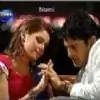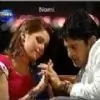Hindu Marriage ritual Kanyadaan was in controversy in recent past, after an ad featuring Alia Bhatt. Many women came out saying Kanyadaan objectifies a woman and should be done away with. There are many instances where Couples dont opt for this ritual.
According to Shastras, Kanyadaan is an important ritual where the Father gives away his daughter(Laxmi) t the Groom(Vishnu). A Father is said to attain Brahmalok when he performs Kanyadaan. It said, he pays back the debt of his ancestors, by performing this ceremony.
An excerpt from Vedic Wedding Book by A.V. Srinivasan pubmished by Penguin
https://penguin.co.in/understanding-the-kanyaadaan-ceremony-an-excerpt-from-vedic-wedding-book/
May I offer to you, the embodiment of Vishnu, this, my
daughter, foremost among all young women, by my side,
covered with golden ornaments, so that I may obtain
salvation in Brahmaloka.
With all the gods and these witnesses, in order to liberate
my ancestors and to achieve dharma, artha and kama, I give
away this gift, my daughter who is virtuous, intelligent and
beautifully adorned.
According to detractors of the ritual, who basically break the word into Kanya and Daan, The daughter is considered as Wealth or Property which is given away as a donation. In the 21st century, a woman doesnt need to Guardian before or after the marriage, so the ritual is not required.
- So what are your thoughts about Kanyadaan
- Do you think it objectifies women?
- Do you think random people should be allowed to alter Hindu Marriage Rituals?
- Should People who have issues about Kanyadaan opt for Civil ceremony instead of trying to meddle with Hindu rituals?
































82